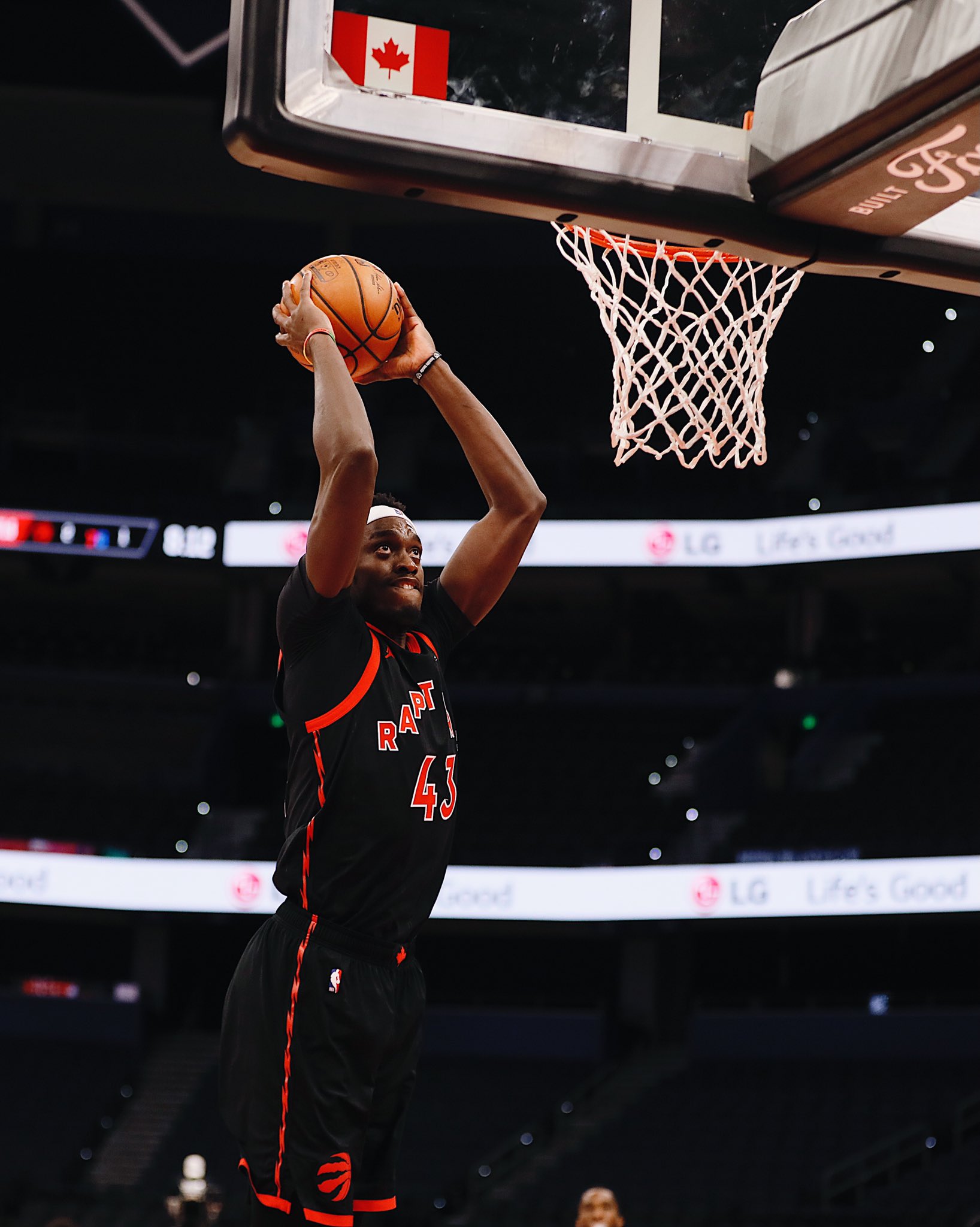You can find the new, live reaction show The Rap Up here. And of course you can listen to Samson Folk’s Rapcast, which he does after every game.
On January 2, the Toronto Raptors came back from down 10 in the fourth quarter against the New Orleans Pelicans to take the lead with a minute remaining, only to fall to an Eric Bledsoe triple. Two nights later, the Raptors cut a 25-point fourth quarter deficit against the Boston Celtics to 10, only to fail to complete the comeback. Against the Golden State Warriors, the Raptors again fought back the fourth, with the game tied with five seconds left. They lost again.
All in all, of Toronto’s 15 losses on the season, they’ve had failed 10-point-or-larger comebacks in six of those games. Termed the fake comeback, Toronto is certainly comfortable making life miserable for opponents after the fate of the game is all but decided.
But in Toronto’s 109-102 loss to the Philadelphia 76ers, the comeback was far from fake. In fact, long after the Sixers had decided the game was over and mailed it in, the Raptors were still playing ball.
“I think we’re getting to that point though where, I’ve always said when you flip on a Raptors game that you’ve got some sense of pride in the way these guys play,” said Nick Nurse after the game. “And I think we’re there now, playing hard, we don’t give in, we don’t give up, we’ll fight back from deficits we’ll try to find a way. You know, guys are injured, whatever, we’ll try to fight as hard as we can and that, for me, I can always live with, I can always live with it.”
After the first quarter, the Raptors were actually the team worth watching. That game with a building full of roaring Raptors fans would have been a sight to behold. Even down double digits with fewer than 60 seconds remaining, the Raptors were stealing passes in a full-court press, tipping balls out of bounds, and scrambling to dig out of the mud.
Pascal Siakam was fantastic, as has been true for quite a while. In fact, his stretch of dominant games, beginning with his incredible early-season performance against the Phoenix Suns, has now stretched to 24 games. That length of games is about equivalent to his streak of five games to begin the year combined with the Orlando Bubble. If you take out those five subpar games to start the year, Siakam’s numbers this season are about equal to or better than they were last season. All signs point to Siakam simply having been on a cold streak for a period of time — if seemingly lengthened by the pause in play and the space in between seasons — but now having firmly recovered.
Against the Sixers, Siakam was once again brilliant for Toronto. He finished with seven assists and shot 8 of 12 from inside the arc. He buried smaller opponents in the post, dominated in transition, and created for teammates whenever he drew help. The only knock was that Siakam shot 1 of 6 from deep. It’s been a trend for Siakam this season, who is down to 29.4 percent from 3 on the year. His confidence in the shot has faltered at times. But that criticism almost misses the point in this game. In the minutes during which Siakam played, Toronto actually beat the Sixers by four points. His defense bordered on indescribable. Even with his shot off, he found ways to win when he was on the court.
That’s what a star does.
The 3-pointer, by the way, was the finger on the scale differentiating the two teams. The Raptors shot 29.7 percent, many of which were wide open looks for their best shooters, like VanVleet and Norman Powell. The Sixers shot 44.7 percent on virtually the same number of attempts, many of which were contested, if late, and shot by statistically poor shooters like Furkan Korkmaz. He finished with five made triples, which is one fewer than half as many as the Raptors had total. To be fair, the Raptors cooled him down in the second half, which, coincidentally, they won by six points.
Plenty of different Raptors were willing to fall on the sword of culpability for Korkmaz’s night.
“I think that I could have done a better job with some of the schemes tonight to get our guys out to the shooters better,” said Nurse.
“Obviously they probably just told their guys to be ready to shoot and line them up and take them, so they were a little bit better with their answer to our rotations tonight, and we just didn’t do it well enough or hard enough or a step slow,” countered VanVleet.
That’s the sign of an interwoven and well-led team, that the coach takes blame for the defensive scheme, and the leadership takes blame for the defensive execution. But in reality, both scheme and execution were solid. Joel Embiid finished with only 18 points. His teammates hit jumpers, and Toronto’s role players didn’t, and that happens. That’s a normal and respectable way to lose a game.
That the Raptors fought to their dying breath made the performance a little more than respectable.
There was a stretch of games, back when Toronto sunk further and further below the water line of .500 basketball, when the best the Raptors could manage was moral victories. At that time, moral victories were getting old. But now, with the Raptors one of the hottest team in the league, and winners of 9 of their last 12 before their loss, a moral victory isn’t so bad. Toronto’s play was, as Nurse said, worth having a sense of pride in. What a difference a few weeks can make in Toronto’s outlook on losses.



